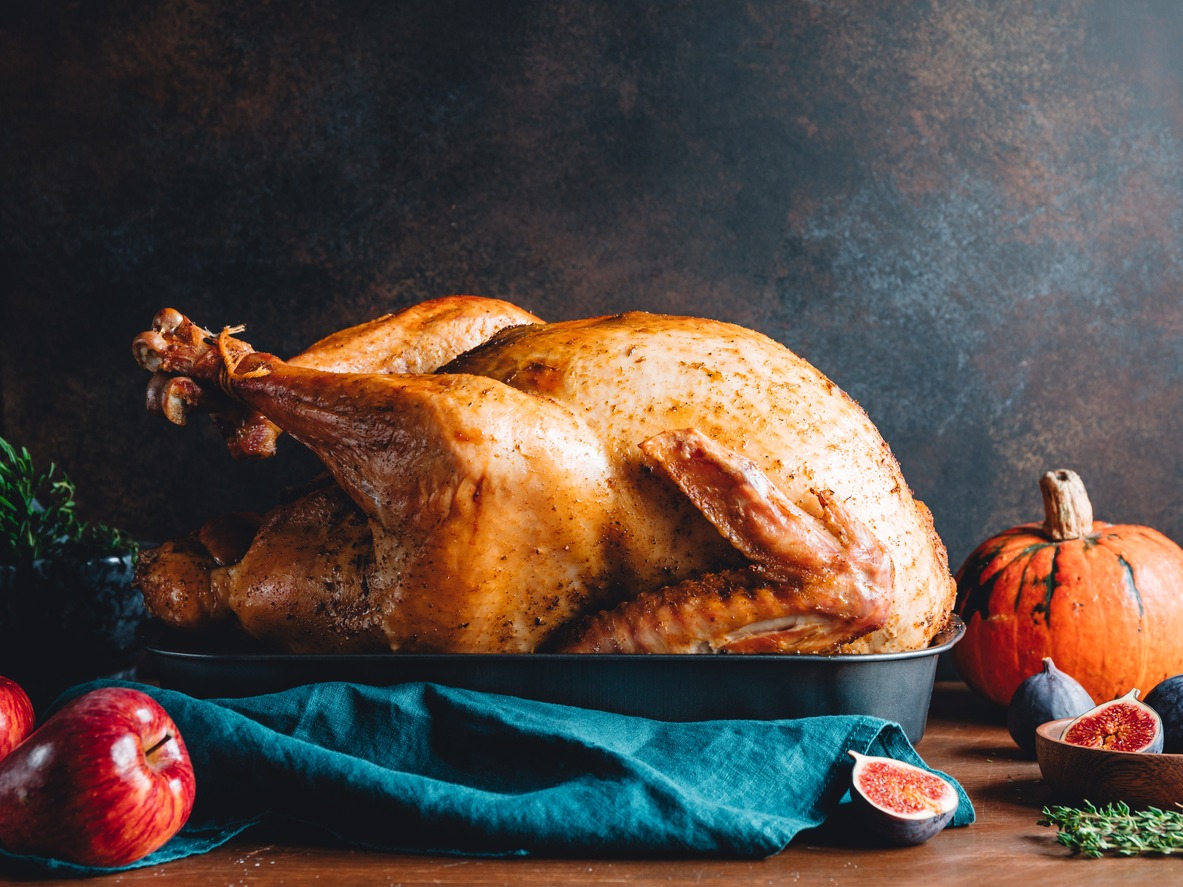This Wednesday, a turkey called “Butter” was promptly escorted to the White House. The turkey, whose ancestors were first domesticated in ancient Mexico, duly received a presidential pardon from Donald Trump, the latest pardon in an annual tradition dating back to 1947.
Across the United States at this time of year, however, around 46 million turkeys receive no such pardon. Centered in just a few states, US turkey production has expanded by over 100% since the 1970s, with turkey becoming a popular protein source in sandwiches and snacks across the nation throughout the year, regardless of whether there’s much to celebrate.
But as Reuters recently reported, the race is on to also develop and scale-up a tasty plant-based turkey alternative for those sandwiches at least, if not for those shared family moments at Thanksgiving or Christmas. Companies like Tofurky have been a flagbearer for that for decades, and recently shifted its focus with the rollout of its own plant-based burger. Traditional protein powerhouses like Tyson Foods, Butterball, and Perdue Foods are all eager not to miss out on the trend towards rising reducetarianism and veganism. They are in a race with alt protein insurgents like Beyond Meat or Impossible Foods — who in turn are striving to keep ahead of a widening array of alt protein startups looking to disrupt the disruptors.
(You can read about the trends alt proteins startups are tapping in AgFunder’s freshly-published White Paper)
#jacksgiving?
Christian Cadeo of Big Idea Ventures, however, thinks he has found a jackfruity answer. “One of our companies Karana makes a killer alt turkey via jackfruit,” he tells AFN in an emailed note. “Specifically kebab,” he adds, “as I don’t really like turkey anyway.”
“Jackfruit does have a texture that lends itself very well to turkey and we have just launched a jack “turkey” dish with a restaurant partner this week for Thanksgiving (#jacksgiving) through the holiday season,” says Dan Riegler from Karana. “It has been getting rave reviews and selling out,” he claims, in a hint of partisanship for his own product.
Karana is based in Singapore, where I’ve been for the last few weeks. I had the chance to try its jackfruit burgers at the Asia-Pac Agri-Food Innovation week there. The upside: tasty, textured and apparently very nutritious. The drawback: a colleague suggested I take a mint later that afternoon, and another attendee warned it could be the cause of bad flatulence.
The jackfruit is related to figs and breadfruit, and as per a well-researched Forbes article, “is believed to be native to south India, where it grew wild for centuries and eventually spread to other parts of Southeast Asia and the Pacific. Jackfruit tend to be pretty big – 10 to 25 lbs on average, but can grow up to 100 lbs. Jackfruit is incredibly versatile, and can be dried, fried, stewed, eaten raw, made into jams, and more. Even its leaves and seeds have uses. The only reason that perhaps its popularity hasn’t spread to the west until recently is that it can be cumbersome to work with. It’s heavy, spiky, slimy, and pungent, and if you don’t have the know-how of its various common preparations, you might mistakenly think it’s pretty useless.”
So if you’re a little shocked and disappointed to feel one of these spiky, slimy things at the bottom of your Christmas stocking this year, fear not! You have the origins of a sustainable feast in your hands. Let’s just hope Santa also packed some mints. Or, if you cannot wait till Christmas, fly over to Grain Traders, a Singapore restaurant now serving their ‘Joy to the Jack’ dish, a plant-based take on roast turkey and all the trimmings, made with Karana’s very own Young Jack.
Have a food product or other food tech you’d like AFN to try? Email [email protected]





